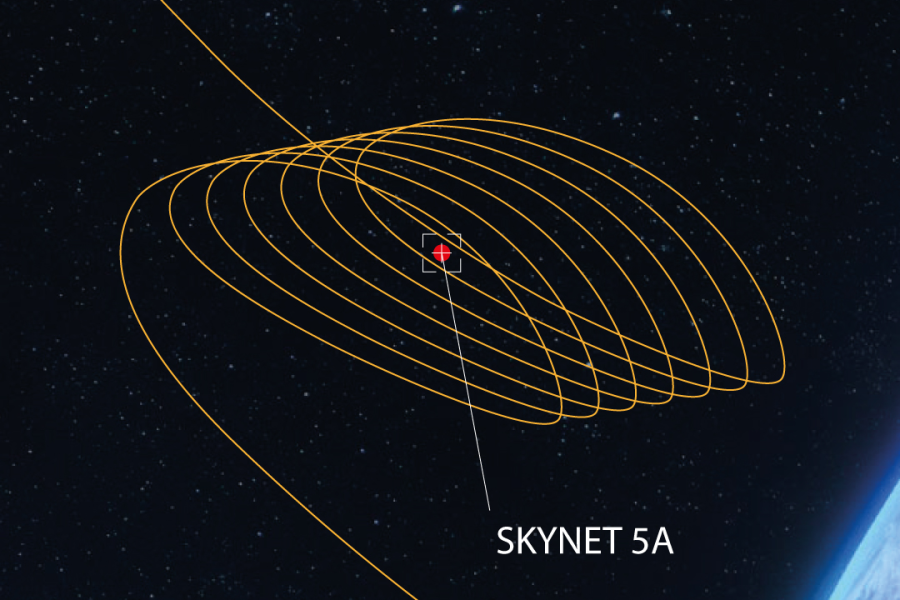A U.S. military satellite maneuvered in orbit to get close to a British spacecraft and relay its observations to the U.K. earlier this month, a first-of-its-kind international space operation.
U.S. Space Command and U.K. Space Command touted the “coordinated satellite maneuver” as both a successful example of dynamic operations in space and international cooperation to deter adversaries in disclosing the operation Sept. 18.
From Sept. 4-12, the U.S. satellite maneuvered closer to the U.K. satellite, in what officials called a rendezvous proximity operation. RPOs are highly complex. The satellites for this operation were travelling about 6,800 miles per hour, and the risk of incidental contact that could damage or destroy both spacecraft is high.
U.S. SPACECOM used the US satellite to observe the British bird and report to U.K. SPACECOM “of its nominal operation in orbit,” according to a U.S. release.
U.K. Space Command, in its announcement, said the maneuver took place in geosynchronous orbit, some 35,000 miles above the Earth.
US SPACECOM did not reveal which U.S. satellite was used for the operation, but the Pentagon operates four Geosynchronous Space Situational Awareness Program satellites designed to maneuver in GEO to examine objects and provide a sort of “neighborhood watch.”
The British said the satellite being examined was SKYNET 5A, used for military communications. They also released an image showing the path of the U.S. satellite around SKYNET 5A.
The operation was carried out under the broader umbrella of Multinational Force – Operation Olympic Defender, a coalition of allies who coordinate their space efforts, share data, and work together to defend against threats.
“This operation was a first of its kind for U.K. Space Command and represents a significant increase in operational capability,” stated Maj. Gen. Paul Tedman, head of U.K. Space Command. “Expertly executed with U.S. Space Command, I could not be more pleased or proud of the rapid progress we are making with our allies in Multinational Force – Operation Olympic Defender.”
Gen. Stephen Whiting, head of U.S. Space Command, praised the success of “this multidomain operation” in a statement.
“[It] represents the warfighting advantage realized by employing our capabilities and expertise as one unified team,” said . “Though our opponents may attempt to replicate the value of such cooperation, our partnerships are uniquely defined by not only the mutual goal of deterring aggression, but a shared pledge to fight and win shoulder-to-shoulder, if necessary.”
Whiting and U.S. Space Command have been vocal in calling for more maneuver operations in space, arguing that U.S. satellites need to be able to chase and run away from threats just like forces in other domains.
